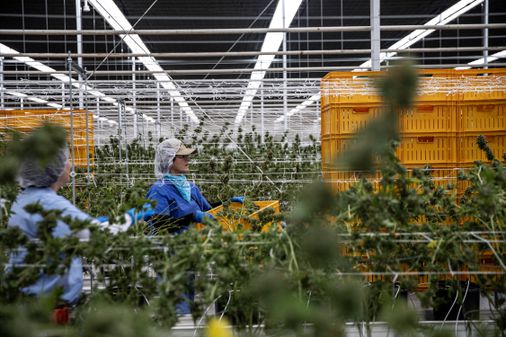Its criminalization has disproportionately harmed Black Americans, who are nearly four times more likely than white people to be arrested for marijuana-related offenses despite similar usage rates.
So in response to what has evidently been bad federal policy, the majority of states, including Massachusetts, have loosened their marijuana laws over the last decade — ranging from decriminalizing the drug to legalizing it for both medical or recreational use.
And earlier this month, the House passed a bill to decriminalize marijuana, tax cannabis products, expunge criminal records related to some marijuana-related offenses, and make Small Business Administration loans available to businesses in the budding weed industry.
But the White House has so far been tepid in response to the House bill’s passage and has not yet thrown its full weight behind this specific legislation.
Because the federal government classifies cannabis as a Schedule 1 substance — on par with heroin and LSD — it stifles researchers’ ability to test the drug for its medicinal use if they receive federal funds, and it makes operating businesses in the legal weed market difficult.
That’s ultimately detrimental to both consumers and businesses because the federal government is contributing to an environment where small businesses can’t access the resources that conglomerates have.
Far too many people, disproportionately Black and brown, have been anchored by criminal records, simply for possessing pot, that have held them back from job attainment or career advancement.
And as the movement to decriminalize marijuana has begun to attract more and more Republicans, Biden has an opportunity to add another bipartisan win to his domestic agenda.
